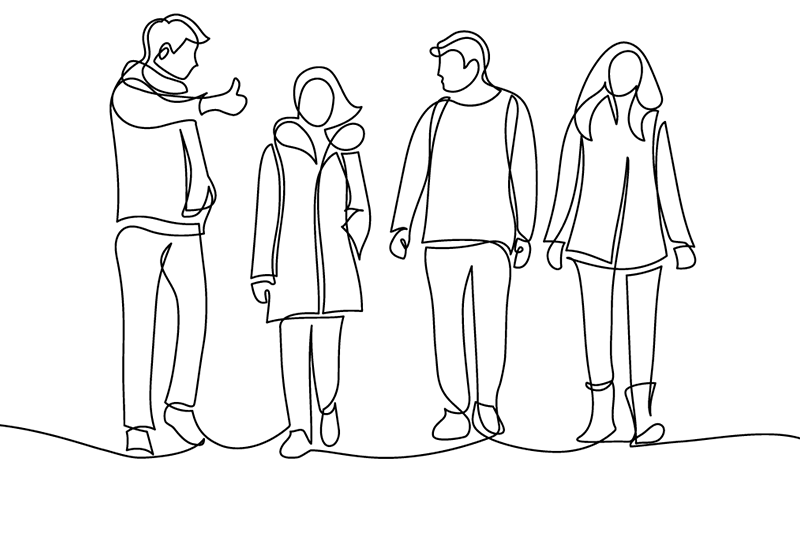Frequently Asked Questions
What areas can counselling Adults help with?
Counselling creates a space where you can talk openly and honestly, with no need to self edit or hold back, some of the areas I can help with are,
- Anger Management
- Anxiety
- Bereavement and loss
- Bullying
- Communication difficulties
- Depression
- Low self esteem and confidence
- Parenting
- Relationships
- Stress (money, health, relationships, work)
- Trauma
- Work related issues
Counselling can help you to see fresh perspectives and offer alternative interpretations of the experiences that you have had.
Counselling is based around non judgemental principles that it is neither helpful nor indeed relevant to judge, it is about being an observer of life and not to make decisions as to whether something is right or wrong.
Counselling is interested in how you the client are and how you want to change to move to a happier more content state.
Counselling offers a safe space to really pick apart the emotional tangle and look at the options that face you.
Counselling is about giving you the space and time amidst crisis in your life to think about your problems with a different perspective, it is about reflection and finding the best way forward.
What is confidentiality
Confidentiality in counselling creates a space where the client can explore sensitive subjects in the knowledge that the counsellor will not repeat or misuse the information discussed outside of the counselling room. For the counsellor maintaining confidentiality within certain limitations is an ethical responsibility and it is part of what makes counselling different from other relationships.
There are certain limitations and circumstances where a counsellor may need to break confidentiality.
Legal Limitations
- If a client discloses involvement in, or information about acts of terrorism, the therapist is legally obliged to inform the authorities, and cannot inform the client of their intention to do so.
- If a client gives the therapist information regarding money laundering or drug-trafficking offences, the therapist is obliged to pass this information to the police.
- A judge or coroner can legally order the release of client notes.
Other Common Limitations
- Supervision – Most professional bodies require that counsellors undertake regular, ongoing supervision of their client work. This is anonymised, and the focus of supervision is on the therapist’s work rather than the client’s material. Nevertheless, this is a limitation of confidentiality which the client needs to be made aware of.
- Risk of harm to self– If a client is expressing suicidal thoughts or intent, the counsellor will have policies to follow regarding when and how confidentiality will be broken. It is important to be aware of policies within any organisation you are working in, and act in accordance with them.
- Risk of harm to others – Most organisations and therapists in private practice have policies in place designed to protect children and vulnerable people. Although there is no legal obligation to report abuse, safeguarding is an ethical responsibility, and, in some cases, confidentiality will have to be broken. In circumstances where there may be an increased risk to a child or vulnerable person, clients are unlikely to be informed that the therapist intends to break confidentiality.
 How do I book a counselling session?
How do I book a counselling session?
Please do get in touch if you would like a no obligation private conversation, you can call on 07715 296741 or fill in our online form and I will be in contact within 24 hours. If you are happy to go ahead. I will email you an initial consultation form to fill out and return prior to your visit. | The Snug Adults Contract
We will then book in our initial consultation.
After this initial meeting I will email you with my thoughts and how I feel I can help, and if you would then like to work with me, we can book in your first session.
 How many sessions should I book?
How many sessions should I book?
This will be discussed after our initial meeting as each client has unique needs. As a rule of thumb, I suggest a minimum of 6 sessions, with a review after the first 6 sessions as to how things are going and how many more may be needed if any at all. l absolutely understand that this is a big financial commitment, and I will always communicate and review how things are progressing.
 How much does a session cost if I work within the Creative Industry?
How much does a session cost if I work within the Creative Industry?
I understand the freelance nature of the Creative Industry and believe passionately that people should have direct access to therapy when needed, with this in mind please email me to discuss.
 What happens if you cannot attend your session?
What happens if you cannot attend your session?
Counselling works best with continuity which is why I suggest keeping our sessions to a minimum of once a week. All cancellations should be made over the phone. I cannot accept cancellations via email. For cancellations occurring more than 24 hours prior to your appointment, no charges will be incurred. For cancellations made less than 24 hours prior to their appointment time, the full charge for your scheduled session will be applied. For appointments not kept (and not cancelled) the full amount will be charged.
 What Qualifications do you have?
What Qualifications do you have?
I am an advanced Integrative Counsellor and Psychotherapist, and part of the NCPS, fully insured with a current DBS certificate. I have regular Professional Clinical Supervision.
Counselling qualifications:
Generally, counsellors should complete the following stages of training:
- An introductory ‘taster’ course to introduce them to the basic ideas and skills behind counselling; and/or
- A certificate in counselling skills to introduce them to counselling theories and ethics, practical counselling skills and self-awareness; followed by
- A diploma or advanced diploma in counselling to provide an in-depth study of counselling theory and ethics, and a supervised practice placement that includes at least 400 hours. To be accepted onto a diploma course, counsellors usually need a counselling skills certificate. For some courses, they will also need a degree or equivalent.
The National Counselling and Psychotherapy Society (NCPS), formerly the National Counselling Society, is a member-led professional body for counsellors and psychotherapists in the UK. They are committed to maintaining high standards in training and practice, as well as supporting and advocating for both the counselling profession and the mental health of the nation.
Their ethos is that counselling and psychotherapy is a unique vocation and this is reflected in their policies. All members of the NCPS uphold the NCPS Code of Ethics.
 How long do sessions last?
How long do sessions last?
Each session is 50 minutes and takes place once a week. However, some people may feel that they need to attend more than once and this can be discussed. I would ask that you arrive 10 minutes prior to your appointment in order that you can settle and prepare for the session.
 How can therapy help me?
How can therapy help me?
Therapy helps you understand how your experiences in life have led you to where you are now. You’ll learn to hone in on the patterns that have developed in your thinking and nervous system to better understand yourself and your current needs. Therapy allows you to not only focus on what’s wrong, but also focus on your strengths and the best ways to practically apply what you’re learning in your day to day life. Our goal as therapists is to “work ourselves out of a job.” Our hope is that you leave therapy with a renewed self-trust and confidence in your ability to navigate the ups & downs of life according to your personal values.
Useful Numbers & Contacts
Film & TV Charity support line – 0800 054 0000
To talk about anything that is upsetting you, you can contact Samaritans 24 hours a day, 365 days a year. You can call 116 123 (free from any phone),
If you’re under 25, you can call The Mix on 0808 808 4994 (Sunday-Friday 2pm–11pm), request support by email using this form on The Mix website or use their crisis text messenger service.
If you’re a student, you can look on the Nightline website to see if your university or college offers a night-time listening service. Nightline phone operators are all students too.
If you identify as gay, lesbian, bisexual or transgender, you can call Switchboard on 0300 330 0630 (10am–10pm every day), Phone operators all identify as LGBT+.
Anxiety UK – Charity providing support if you have been diagnosed with an anxiety condition. www.anxietyuk.org.uk Phone: 03444 775 774 (Monday to Friday, 9.30am to 5.30pm)Bipolar UK – A charity helping people living with manic depression or bipolar disorder
PAPYRUS – Young suicide prevention society.
Phone: HOPElineUK 0800 068 4141 (Monday to Friday, 10am to 5pm and 7pm to 10pm, and 2pm to 5pm on weekends)
SANE – Emotional support, information and guidance for people affected by mental illness, their families and carers. SANE line: 0300 304 7000 (daily, 4.30pm to 10.30pm) Text care: comfort and care via text message, sent when the person needs it most:
Refuge – Advice on dealing with domestic violence. Phone: 0808 2000 247 (24-hour helpline) www.refuge.org.uk
Alcoholics Anonymous Phone: 0845 769 7555 (24-hour helpline) www.alcoholics-anonymous.org.uk
National Gambling Helpline Phone: 0808 8020 133 (daily, 8am to midnight) www.begambleaware.org
Narcotics AnonymousPhone: 0300 999 1212 (daily, 10am to midnight) www.ukna.org
Cruse Bereavement CarePhone: 0844 477 9400 (Monday to Friday, 9am to 5pm) www.crusebereavementcare.org.uk
Rape Crisis – To find your local services phone: 0808 802 9999 (daily, 12pm to 2.30pm and 7pm to 9.30pm) www.rapecrisis.org.uk
Victim Support Phone: 0808 168 9111 (24-hour helpline) www.victimsupport.org
Eating disorders Beat Phone: 0808 801 0677 (adults) or 0808 801 0711 (for under-18s)Website: www.b-eat.co.uk

Contact The Snug
Founder Kim Todd
Contact Number 07715 296741
----------------------------------------------
Hello, if you would like to book an Initial Consultation or have some questions, please do feel free to get in touch via this link or email me at kimvond@hotmail.co.uk.
You can also text me on 07715 296741
I will endeavour to get back to you within 24 hours. In the meantime please do take a look at my FAQ.
